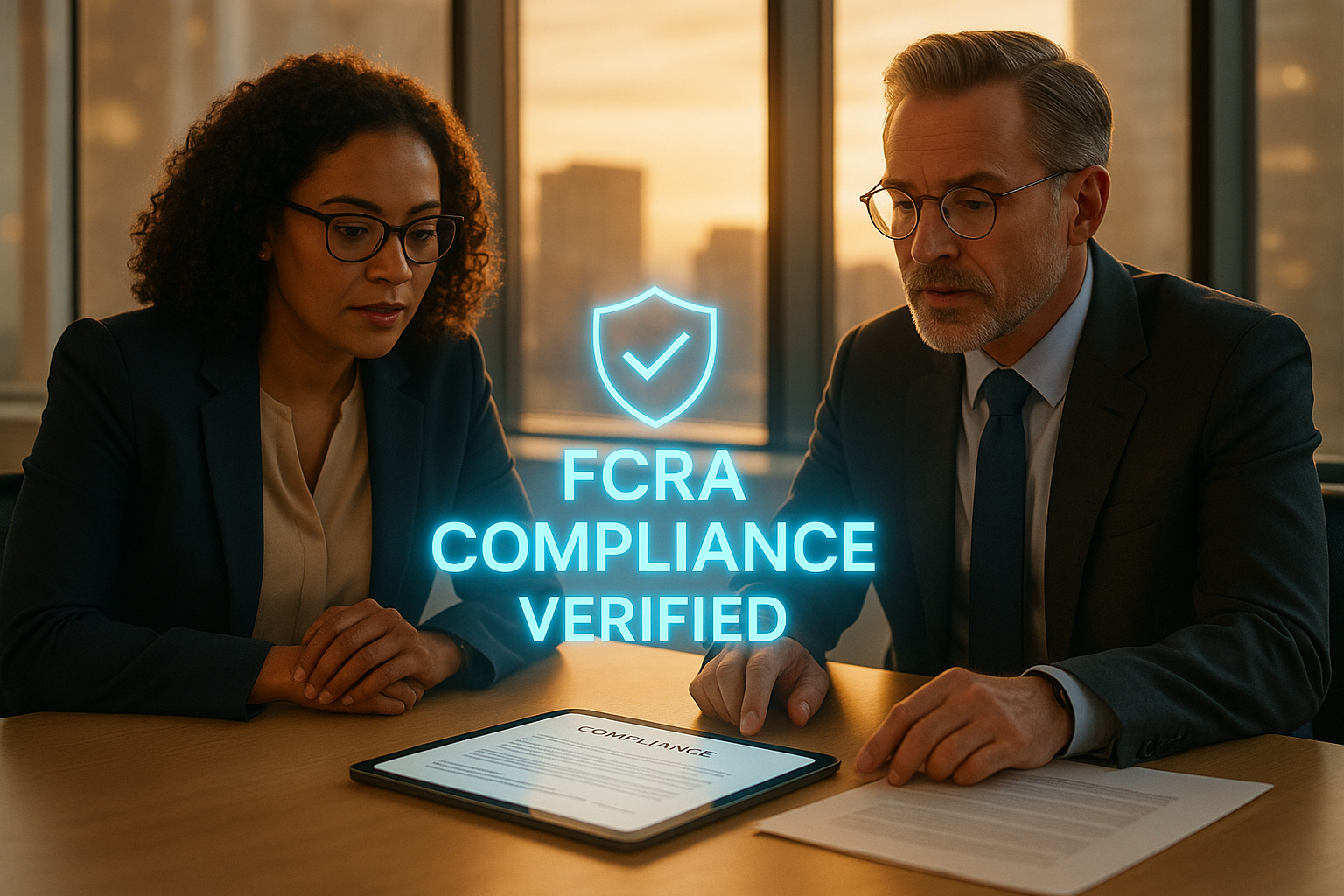The Case for Social Media Screening in Hiring

Introduction
In an age where nearly every candidate has a digital footprint, the hiring process is no longer confined to resumes, interviews, and reference checks. Social media screening – reviewing a candidate’s publicly shared online content – has emerged as a powerful tool for uncovering character and culture fit. Yet many HR managers and executives remain hesitant. This white paper addresses the common resistance to social media and online due diligence in hiring, debunks myths about its legality, and demonstrates why character assessment through digital screening is essential for building a strong, safe, and productive workplace culture.
We will explore real-world examples of companies that suffered by not vetting candidates adequately, highlight the pitfalls of a DIY approach, and show how the cost of a bad hire or toxic employee far outweighs the effort of thorough screening. The goal is to engage you in a narrative that is both cautionary and empowering – illustrating the risks of ignoring candidates’ online behavior and the benefits of embracing social media screening as a standard, compliant hiring practice.
HR’s Reluctance: Legal, Ethical, and Cultural Concerns
Despite the ubiquity of social media in our lives, formal adoption of social media screening by HR leaders has been sluggish. A mid-2010s survey by Sterling found that only 5% of organizations openly acknowledged using social media information in hiring decisions. Many experts believed this number was underreported – hiring managers were likely checking Facebook or LinkedIn “under the table,” but HR policies didn’t officially sanction it.
Why the hesitation? HR professionals cite a mix of legal, ethical, and cultural concerns:
Legal Risks & Discrimination
HR leaders fear that looking at a candidate’s social media could expose them to information about protected characteristics (e.g., race, religion, disability, pregnancy status) that are illegal to factor into hiring. Once you “see” such information, you can’t unsee it. Some also worry about violating data privacy laws (such as Europe’s GDPR) and Fair Credit Reporting Act (FCRA) requirements in the U.S.
However, no law in any OECD country outright prohibits employers from reviewing a candidate’s public online behavior.
Ethical & Cultural Reservations
Beyond legality, some HR professionals feel it’s ethically ambiguous to review a person’s personal life or opinions outside of work. However, in today’s connected world, an employee’s public social media activity is a reflection of their professional reputation and values.
Fear of Legal Uncertainty
Even though guidance exists, the patchwork of regulations can be confusing. Many HR leaders mistakenly believe that simply viewing public profiles is illegal. In reality, what is prohibited is hacking into private accounts or basing hiring decisions on protected characteristics.
The Legality of Social Media Screening: Myth vs. Reality
One of the biggest misconceptions holding HR back is the idea that social media checks are some kind of legal gray area or even outright illegal. Let’s set the record straight:
- Public Information is Fair Game: If a candidate’s Facebook posts, Twitter (X) feed, TikTok videos, or LinkedIn comments are publicly visible, an employer is within their rights to look at them.
- What Is prohibited: Employers cannot ask for passwords, hack into private accounts, or use information for discrimination.
- Legal Precedent Supports Diligence: Courts have recognized negligent hiring as a legal risk. If an employer fails to uncover readily available red flags, they can be held liable for workplace incidents.
Turnover Costs by Position Level
As this table illustrates, turnover costs increase significantly with seniority. This reinforces the need for better hiring decisions upfront.
Real-World Consequences of Inadequate Vetting
Organizations that fail to screen candidates’ online behavior open themselves up to significant risk. Here are real-world case studies of companies that suffered:
- Condé Nast & Teen Vogue: Hired editor Alexi McCammond without screening old tweets. Racist posts surfaced, causing PR damage and McCammond’s forced resignation.
- Vienna Stadium Attack: A 19-year-old stadium worker with public ISIS ties was hired, prompting concert cancellations.
- JPMorgan’s London Whale Scandal: A trader’s unchecked behavior cost the bank $6 billion.
The DIY Dilemma: Why “Googling” Candidates Isn’t Enough
Many hiring managers attempt do-it-yourself (DIY) social media screening, but this creates more risks:
- Unconscious Bias: Informal searches expose hiring managers to protected characteristics.
- No Formal Recourse: DIY searches lack fairness safeguards like allowing candidates to dispute findings.
- Privacy Violations: Hiring managers may overstep by viewing private accounts or misidentifying profiles.
Impact of a Toxic Hire on Business Costs
A toxic hire doesn’t just affect one person—they infect an entire organization.
The High Cost of Turnover and Toxic Hires
Replacing an employee incurs tangible and intangible costs:
- The U.S. Department of Labor estimates a bad hire can cost 30% of first-year earnings.
- Toxic workers drive good employees away: Employees working with a toxic colleague are 54% more likely to quit.
Investing in character screening saves money by preventing bad hires and fostering a healthier culture.
Building a Strong Workplace Culture Through Character Screening
A candidate’s online presence can be a window into their character. Screening can help HR teams:
- Identify values-aligned employees
- Prevent workplace toxicity
- Build a safe and inclusive culture
Hiring isn’t just about evaluating skills—it’s about ensuring every hire enhances company culture.
Conclusion: Embracing Digital Due Diligence – A Call to Action
Social media screening is no longer optional. A single offensive tweet can cost an executive their job. A violent hire can put lives at risk. The cost of not screening is simply too high.
By implementing structured, ethical social media screening, HR leaders can:
- Reduce turnover costs
- Avoid PR disasters
- Build stronger workplace cultures
HR professionals must champion digital due diligence—not as “spying,” but as a strategic, ethical risk management tool.
The future of hiring is clear: Character matters. Digital footprints matter. It’s time for HR to lead the way.






